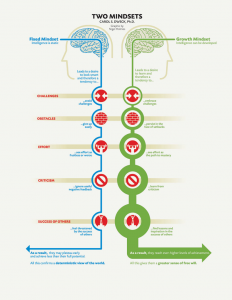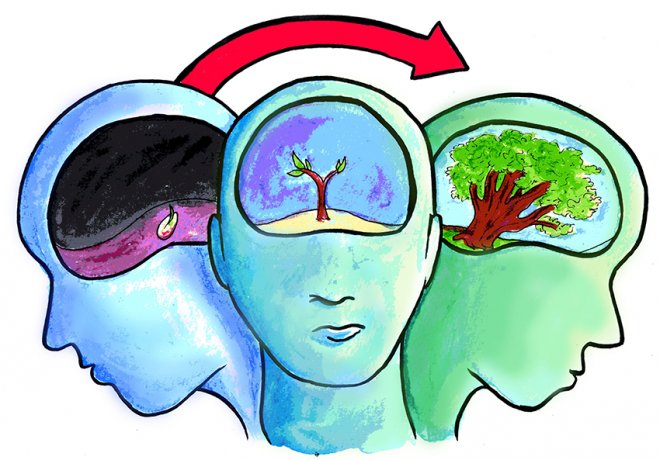“If you imagine less, less will be what you undoubtedly deserve,”
Debbie Millman, a writer, educator, artist and brand consultant again urged that,
“Do what you love, and don’t stop until you get what you love. Work as hard as you can, imagine immensities…”
which reflects how belief systems of our own abilities and potential fuel our behavior and predict our success.
According to the Stanford psychologist Carol Dweck, synthesized in her remarkably insightful book Mindset: The New Psychology of Success a change of simple belief can have profound impact on our lives which will be insightful for our Sri Lankan society. According to the research,
- “Fixed Mindset” assumes our character, intelligence and creativity, which cannot change in any meaningful way, striving for success and avoiding failure at all cost.
- “Growth Mindset” on the other hand, thrives challenges and sees failure not as evidence of unintelligent but as heartening springboard for growth and for stretching our abilities.

The fixed mindset — creates an urgency to prove yourself over and over. The growth mindset — so winsome, that it creates passion for learning than a hunger for approval. Its hallmark is that qualities like intelligence and creativity, love and friendship, can be cultivated through deliberate effort. It will not be discouraged by failure, necessarily not seeing those situations as failures.
“Why waste time proving over and over how great you are, when you could be getting better? Why hide deficiencies instead of overcoming them? Why look for friends or partners who will just shore up your self-esteem instead of ones who will also challenge you to grow? And why seek out the tried and true, instead of experiences that will stretch you? The passion for stretching yourself and sticking to it, even (or especially) when it’s not going well, is the hallmark of the growth mindset. This is the mindset that allows people to thrive during some of the most challenging times in their lives.”
-Carol Dweck-
Fixed vs Growth Mindset
It is indeed in society’s hand to teach especially children, the fellow men and women to cultivate healthy relationships with achievements at early age. In other words, the priority should be learning, not the binary trap of success or failure. These findings are important as a culture, on how we assess intelligence.
In fact, those with a growth one, “personal success is when you work your hardest to become your best”. Whereas for those with a fixed one, “success is about establishing their superiority, pure and simple. Being that somebody who is worthier than the nobodies.” For the latter, setbacks are a sentence and a label. For the former, they’re motivating, informative input — a wake up call..
When it comes to everyday life, fixed mindset is of constant judging and evaluation. It uses every piece of information as evidence either for or against. Makes assessments as to whether you’re a good person, whether the partner is selfish, or whether you are better than the person next to you. Growth mindset, on the other hand, is not of judgment but one of voracious appetite for learning. It constantly seeks out the kind of input that you can metabolize into learning and constructive action.
Let’s embark on a mindset to develop all these traits. Where everyone next to us in the society are capable of growth and change for a better place to live…


